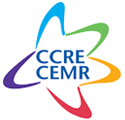
The Netherlands Unitary state
| THE NETHERLANDS | / REFORMS |
Reforms
Three texts that are currently going through the process of adoption call for the decentralisation of certain competences in favour of Dutch municipalities.
Several texts in preparation aim to entrust local authorities with additional competences, in particular with regard to social policy (by 2014), health, and policies relating to youth (by 2015). However, certain competences will be subject to more governmental control. While additional financial transfers will compensate for the new expenditure, the central government will also be introducing cuts to the previous budget of around 30%, citing better efficiency and fewer claims at the local level in managing these services.
In conjunction with the objective to reduce the costs of local and regional administrations, Dutch authorities have been pushing for the consolidation of provinces and municipalities, even if these territorial changes are to be carried out on a voluntary basis. The boroughs of Amsterdam and Rotterdam will also be eliminated. Additionally, in recent years, many municipalities have increasingly relied on intermunicipal cooperation in order to manage their new decentralized competences. These agreements are neither legally pre-established nor obligatory and they depend on the services involved, so as to avoid a top-down imposition.
The search for better efficiency at local level led the municipalities and provinces to implement budget cuts, especially shortages on ground operations and reduced value of their ground possession. Many local and regional authorities have in fact been cutting their operating and payroll costs.
Local self-government in the Netherlands:
The reforms currently being carried out strengthen the competences of Dutch municipalities, but the financial difficulties that local and regional authorities face may adversely affect local and regional self-government.





